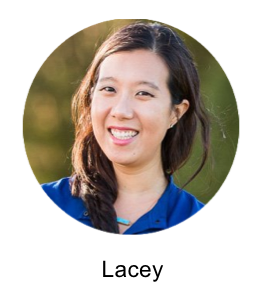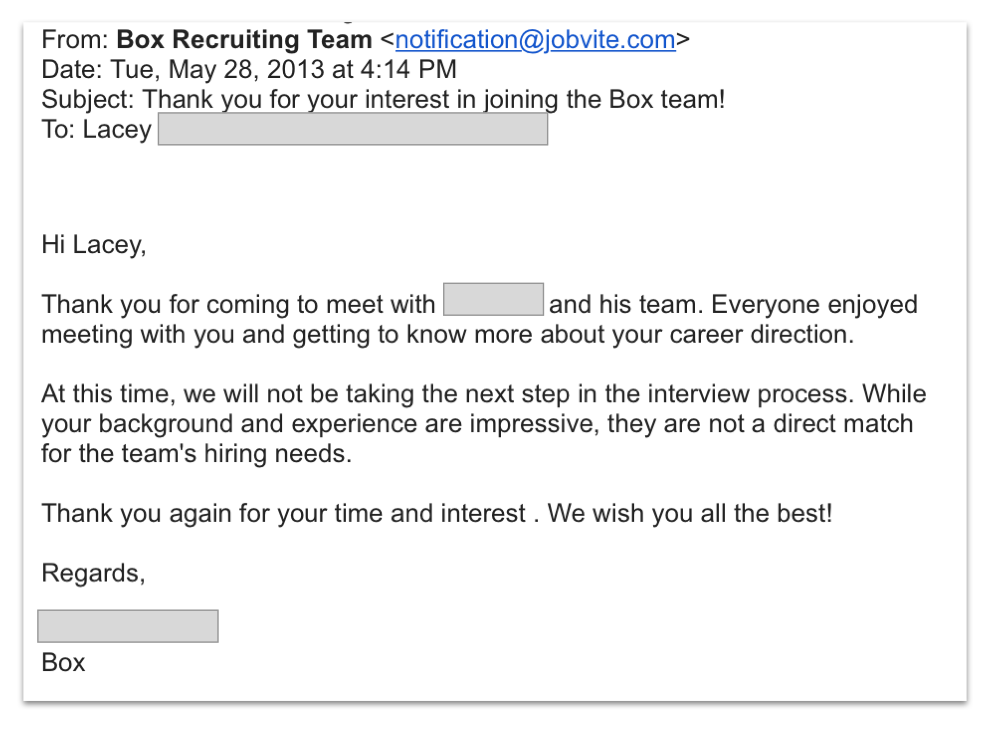Getting rejected is part of the job search and it happens to everybody.
However, there can be positives to rejections during the job search. At its best, rejections give you an opportunity to reflect, learn, and make changes to do better next time. At its worst, rejections can lead you into the rejection downward spiral.
What’s the rejection downward spiral?
The rejection downward spiral is when you’re blindly shooting your resume to any and all job openings you find. The piling rejection emails fuel your anxiety to give you a burst of manic enthusiasm to pump out more job applications, which only returns more rejections, which leads to more applications, which leads to more rejections…and on and on.
You start measuring success by how many job applications you’ve submitted in one day. You say things like,
I was really productive today, I applied to 15 jobs.
It’s a numbers game, I just need to get my resume in front of as many companies as possible.
The rejection downward spiral makes you lose perspective on your job search, leads to significant emotional distress, and leaves you hopeless. Sound familiar?
Here’s how to get out of the rejection downward spiral:
Stop thinking about yourself and what you want.

In the rejection downward spiral, your focus is inward, it’s on yourself. You think about what kind of job you want, what you need out of a job, and where you want to work.
Here’s the thing, have you thought about it from the other perspective? What do companies need? Who do companies want?
During the job search, it’s all about how you, the applicant, can present and signal yourself as someone who can fill a company’s needs. Not the other way around.
When a company is writing a job listing, they’re not thinking about what you want in a job, but rather what they need.
Here’s how Lacey turned a rejection into an aha! moment and avoided the rejection downward spiral.

In 2013, Lacey knew she wanted to transition out of consulting and into tech.
She thought about what kind of roles she wanted and what tech companies she wanted to work for. She followed the good practice of talking to friends she knew at tech companies and got referrals.
Pretty quickly, she had a handful of interviews lined up. The first few interviews at tech companies were a little rough and she got rejections, but she learned from her mistakes and made it all the way to the final round for a sales role at Box.
She put everything into preparing for that interview.
After the final round interview, she felt pretty confident. A few days later, however, she got this email:

Needless to say, she was disappointed.
However, instead of charging ahead and immediately applying to a bunch of tech companies, Lacey took a step back to reflect on her approach.
In her words,
I couldn’t stand the thought of applying to a hundred other tech companies and going through the same time consuming process over and over. I wanted to break into a tech company as soon as possible and I realized I needed to focus my job search.
The aha! moment was when I started to think about what differentiated me from the hundreds or thousands of other people who wanted to get a job in tech. I started to think about what differentiated experiences and skills I had that tech companies want that other applicants might not have.
This was the turning point.
I was in consulting for over three years and most of my experience was in healthcare. I was overseeing software implementations for large hospital systems. I understood the ins and outs and the challenges of introducing new technologies to the healthcare industry. I knew this was specialized experience that would make me stand out at healthcare tech companies.
I honed in my job search on healthcare tech companies because I knew that while these companies may have expertise in the technology space, they needed people with expertise in how technology is adopted in hospitals, their largest and most important customers. I could help bridge that gap.
I targeted a Business Development role at Practice Fusion, an electronic medical record software company that sells into hospitals and health clinics. I knew my background would be a strong differentiator for this role.
During the interviews, I highlighted my experience working with technology in hospitals as a consultant. The interviews went extremely well and I received a job offer soon after my final round interview!
After I joined, my then co-workers who interviewed me told me how excited the team was for me to join because I had experience working in the hospital setting. That was a big differentiator!
As Lacey shifted her focus from what she wanted to what companies wanted, she was able to use a rejection to make a pivot to help her break into tech.
Her story illustrates that the job search isn’t just a “numbers game.” Rather, it’s a game of focused strategy and figuring out how to differentiate yourself in the eyes of the company is the name of the game.
Lacey is now a Product Manager at Proteus Digital Health.
Also, fun fact, Lacey is my wife and I am extremely proud of her! 😍😍😍
